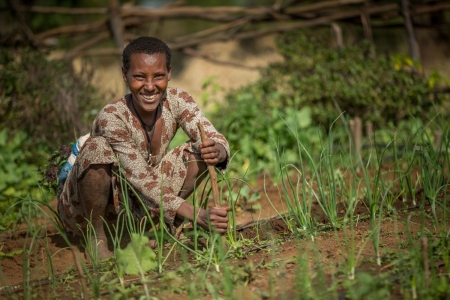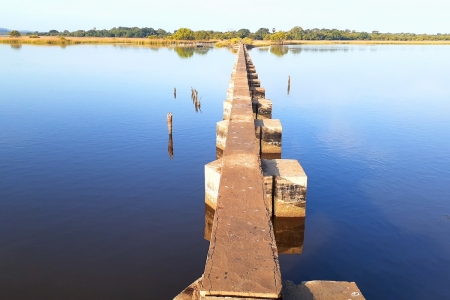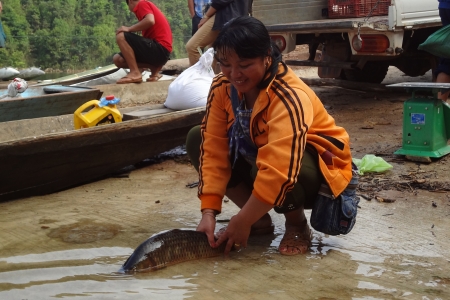World Water Week is an annual event organized by the Stockholm International Water Institute (SIWI) that focuses on globe’s water issues. The theme for 2019 is Water for society – Including all.
WLE, its lead center, the International Water Management Institute (IWMI), and its core partner the International Food Policy Research Institute (IFPRI) convene partners for this important topic to host and participate in a number of key activities through the week.
Below are events led by or involving WLE, IWMI, and IFPRI. Information is tentative and may have been changed by the organizers, so please check the SWWW website.
And see WLE's campaign page, where we lay out the case - and solutions - for a Fairer Future.
Sunday, August 25
Women and Youth: Living Apart Together
11.00-12.30, 14.00-15.30, Room, L8
Women and youth are two major groups affected by lack of access to safe water and sanitation. Human-rights based and gender-responsive interventions that reduce inequalities and increase access to water and sanitation have the potential to dramatically improve the lives and livelihoods of youth and women worldwide – and to ensure that no one is left behind. Learn more.
SDG trade-offs and synergies
14.00-15.30, Room L9
Advancement in most of the SDGs, and SDG 6 in particular, have the potential to foster advancement in other SDGs, but progress in some goals can obstruct advancement in others if interventions are not designed carefully. The aim of this session is to discuss different approaches to assessing and addressing these inter-linkages to avoid or minimize negative impacts and conflicting interactions between individual SDGs. Learn more.
Sanitation services and urban development: From Silos to Synergies
14.00-15.30, Room M6
The event aims to link urban water supply, water resources, urban planning and other related professionals with the emerging movement towards non-sewered sanitation. All are visibly or invisibly linked to city development and yet we often work in silos not understanding each other’s work. Improved understanding and better co-ordination between these different disciplines is crucial for well-functioning cities, and improving the quality of lives, the environment and public health. Learn more.
Equity in Climate Change Adaptation
16.00-17.30, Room M3
Impacts from climate change pose many challenges to water and sanitation development and management. Evidence shows that poor and ethnic minorities are both highly exposed to climate extremes and often have lower adaptive capacity. This session aims to contribute to efforts to mainstream equitable climate adaptation that reduces water related vulnerabilities for all. Specifically, it will tackle the critical question of scale - how can we ensure that a focus on equity is the norm in our adaptation efforts moving forward? Learn more.
Monday, August 26
Water, migration and rural development: from knowledge to action
14.00-15.30, Room L10
Discourses, preconceptions, and controversies abound around migration, focusing on international migration from lower income countries to richer countries and on too often simplistic perceptions of the issues or benefits at stake. Organized under the framework of the Water and migration working group of the Global framework for water scarcity in agriculture (WASAG) and of the MARIS network (Migration, Agriculture and Resilience: Initiative for Sustainability), the session will be an opportunity to share knowledge and to discuss implications for development and policy interventions. Learn more.
Leaving no one behind: Building resilient water and food systems
16.00-17.30, Room L8
There is growing understanding of the interconnectedness between food insecurity, environmental vulnerability and exposure to shocks. These shocks and stresses will impact the most vulnerable. This event will engage the current debate on how to build resilient water and food systems in vulnerable and fragile regions. Learn more.
Tuesday, August 27
The multiple bridges connecting the water-nutrition divide: What’s new?
09.00-10.30, Room M6
One out of three people in the world suffers from one or several forms of malnutrition, and every third person lives in a water-stressed environment. Achieving SDG targets for water without consideration of other goals and targets could well constrain efforts to reach SDG targets on nutrition and vice versa. This session discusses new evidence on water-nutrition linkages with a focus on small-scale irrigation. Learn more.
Water (In)Security, Migration, and Regional Integration:Is There a Nexus?
14.00-15.30, Room L11
Regional economic integration promises neighboring countries significant benefits while providing important entry points for sustainable development. By pooling regional markets in goods, services and labor, countries can build on their collaborative advantage, accelerating value-chain formation and attracting infrastructure investment. In the water domain, this translates into trans-boundary cooperation, socially inclusive water allocations and the management of climate risks. Learn more.
Water Cycle Management: towards water security in Asia and Pacific
14.00-15.30 , Room L9
Home to half of the world’s population and spanning environments from the small islands to the high mountains, Asia and the Pacific has developed at a rapid pace over the past decades. However, the benefits of this development remain unequally distributed – as are the water resources that underpin the region’s future sustainability.This session brings together case studies that highlight water cycle management across the region’s diverse geographical and hydrological contexts and scales, demonstrating water solutions based on evidence and knowledge drawn from science as well as local and indigenous knowledge systems. Learn more.
Wednesday, August 28
Linking Biodiversity with Inclusive Development: Why it Matters
09.00-10.30, 11.00-12.30, 14.00-15.30, Room M3
This is a three part seminar. The planet’s biodiversity is under threat and water-related ecosystems rapidly degrading. Healthy aquatic ecosystems are prerequisites for securing many endangered species and life-sustaining systems. Joint efforts are needed on all levels, by all sectors. The three sessions will look at freshwater biodiversity and their relationship to achieving the SDGs, case studies on groundwater recharge and lake rejuvenation, and biodiversity conservation and its link to inclusive development. Learn more.
Sanitation for society, including all
09.00-10.30, Room M5
Both the SDG target and the human right to sanitation guarantee everyone access to sanitation which is safe, private, dignified, hygienic and affordable, and hand-washing facilities, at home and in schools and hospitals. Improved sanitation is a public good that generates economic, health, environmental, social and cultural benefits for society as a whole. This session will explore what exclusion really means. Learn more.
Stockholm Water Prize Ceremony and Royal Banquet
16.30-22.30
The 2019 Stockholm Water Prize, honoring Dr Jackie King from South Africa, will be presented by H.M. King Carl XVI Gustaf of Sweden.
Thursday, August 29
Innovation, Entrepreneurship, and Inclusion: Africa’s Farmer-led Irrigation Revolution
14.00-15.30, Room M5
Farmer-led irrigation is a revolution already in progress with the potential to positively change the lives of millions of smallholder farmers.To reach the promise, we need to move toward innovative approaches to scaling. This session addresses the challenge of how to scale and mainstream inclusive farmer-led irrigation in projects and development activities. Learn more.
Inland fisheries, freshwater governance, and the 2030 Agenda
16.00-17.30, Room L11
The Sustainable Inland Fisheries session at 2018 Stockholm World Water Week underlined that social and economically dominated freshwater management must better integrate the needs of millions of fishers globally who rely on freshwater biodiversity. This session will expedite more ecologically-inclusive freshwater governance by mapping successful pathways and mechanisms that maximize and protect the contribution of inland fishery ecosystem services to the 2030 Agenda. Learn more.

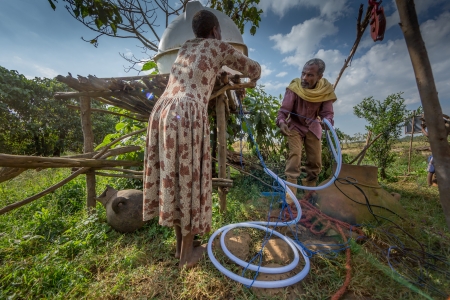

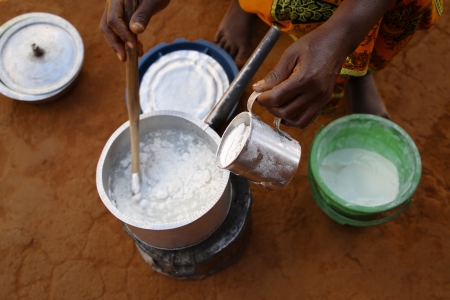
_0/index.jpg?itok=eVsvaMEc&c=9d236e193f4f04217e379c90375e4de8)
